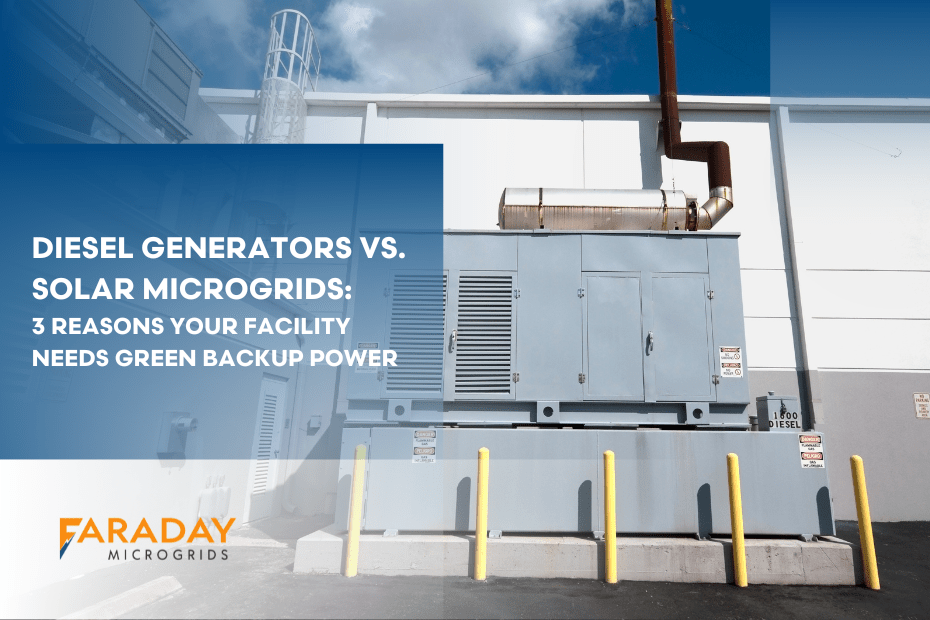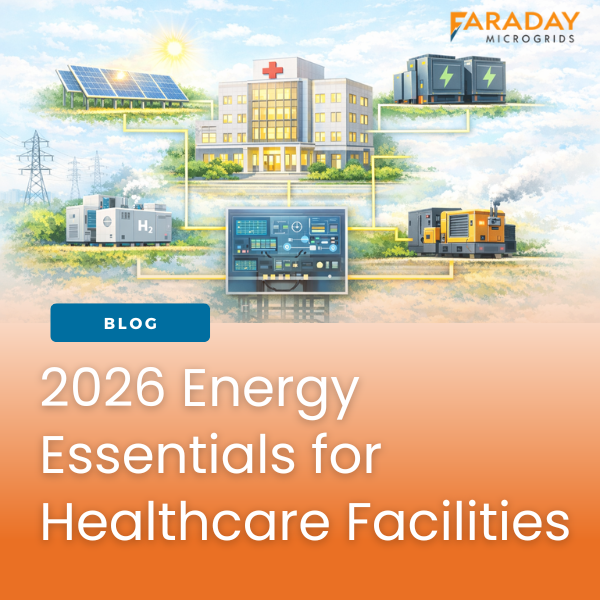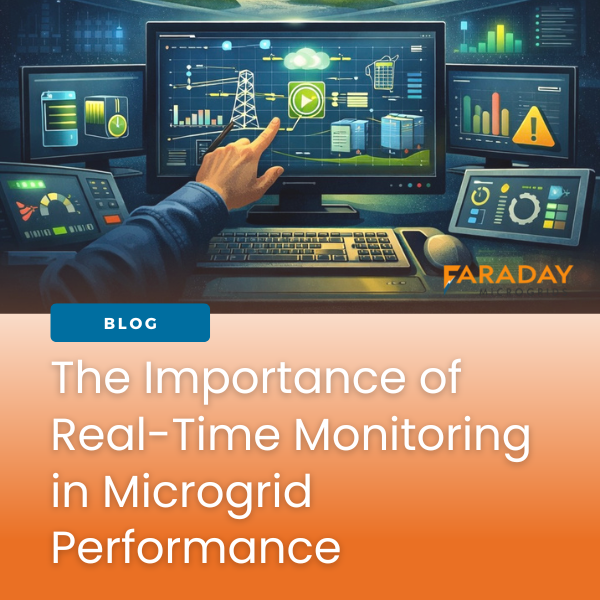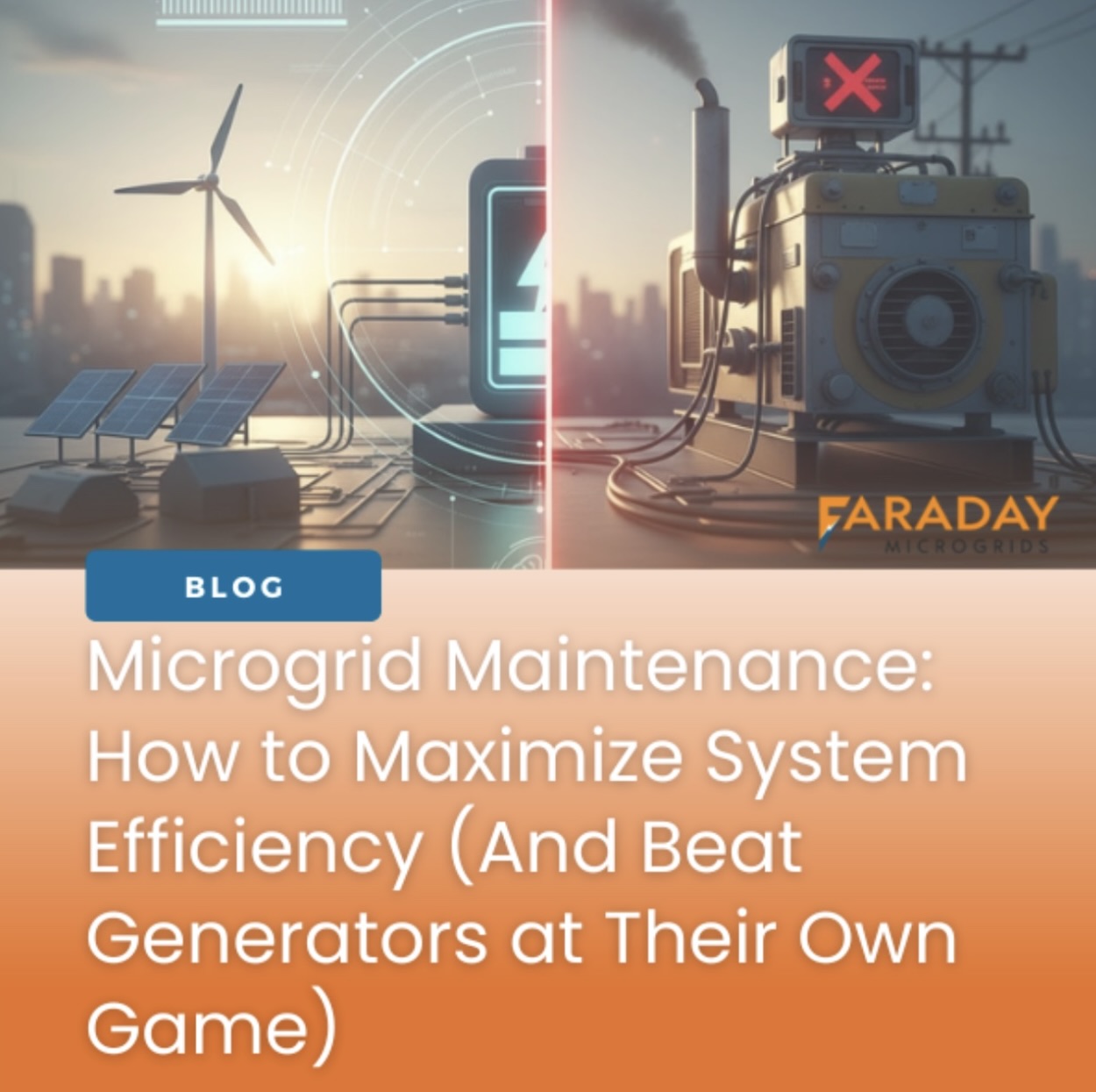Wondering about the pros and cons of diesel generators versus a green solar panel microgrid?
Here are three notable differences in the energy backup technologies. As well as what you need to know in order to make the best choice for your facility.
Diesel Generators are “Dead Assets.”
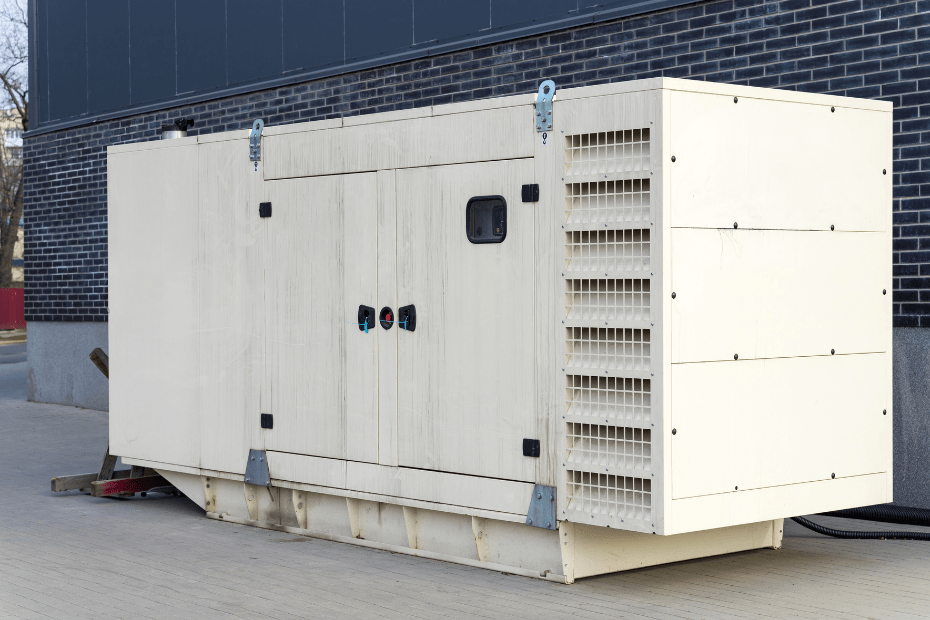
Conventional systems are well-established, reliable, and their operational requirements are known. However, for the vast majority of the time, they contribute to operational cost but produce little value. In addition, fuel storage costs, regulatory documentation, periodic testing, and other activities require dedicated personnel time and effort and add costs.
Renewable energy microgrids (onsite energy generation, storage, and deployment under local control) can provide numerous, ongoing financial benefits. In addition, microgrids require significantly less operation and maintenance. These function as real assets – first paying for themselves and later converting operations expense into capital resources.
Diesel Generators Emit Pollution; Microgrids are Greener
As stakeholder increasingly demand that the businesses they deal with demonstrate sustainability, Diesel generators are increasingly problematic. With some of the worst emissions and impacts on air quality, not to mention the environmental risks associated with fuel storage, diesel generators are subject to significant regulatory restrictions and can trigger negative responses from key stakeholders. On the other hand, clean systems such as microgrids meet all of the performance expectations. This is achieved while either drastically reducing or even eliminating the environmental concerns.
Any organization looking to lower their carbon footprint and also their energy bill would benefit from the installation of a solar panel microgrid.
Diesel Generators Are a Single Point of Failure. Microgrids Offer Diversity and Redundancy for Better Performance.
While diesel generators are considered reliable resources, in the event they fail to function, fuel systems are inadequate, or they are damaged, a site will shut down. In contrast, a microgrid incorporates multiple resources, typically one or more types of energy generation and storage, that allow extended performance as well as the ability to compensate for intermittent availability or even single system failure.
Summary
Whether your goal is to lessen your environmental impact or lower monthly energy bills, a microgrid can help you achieve it.
Schedule your FREE facility analysis with the experts at Faraday Microgrids today.

